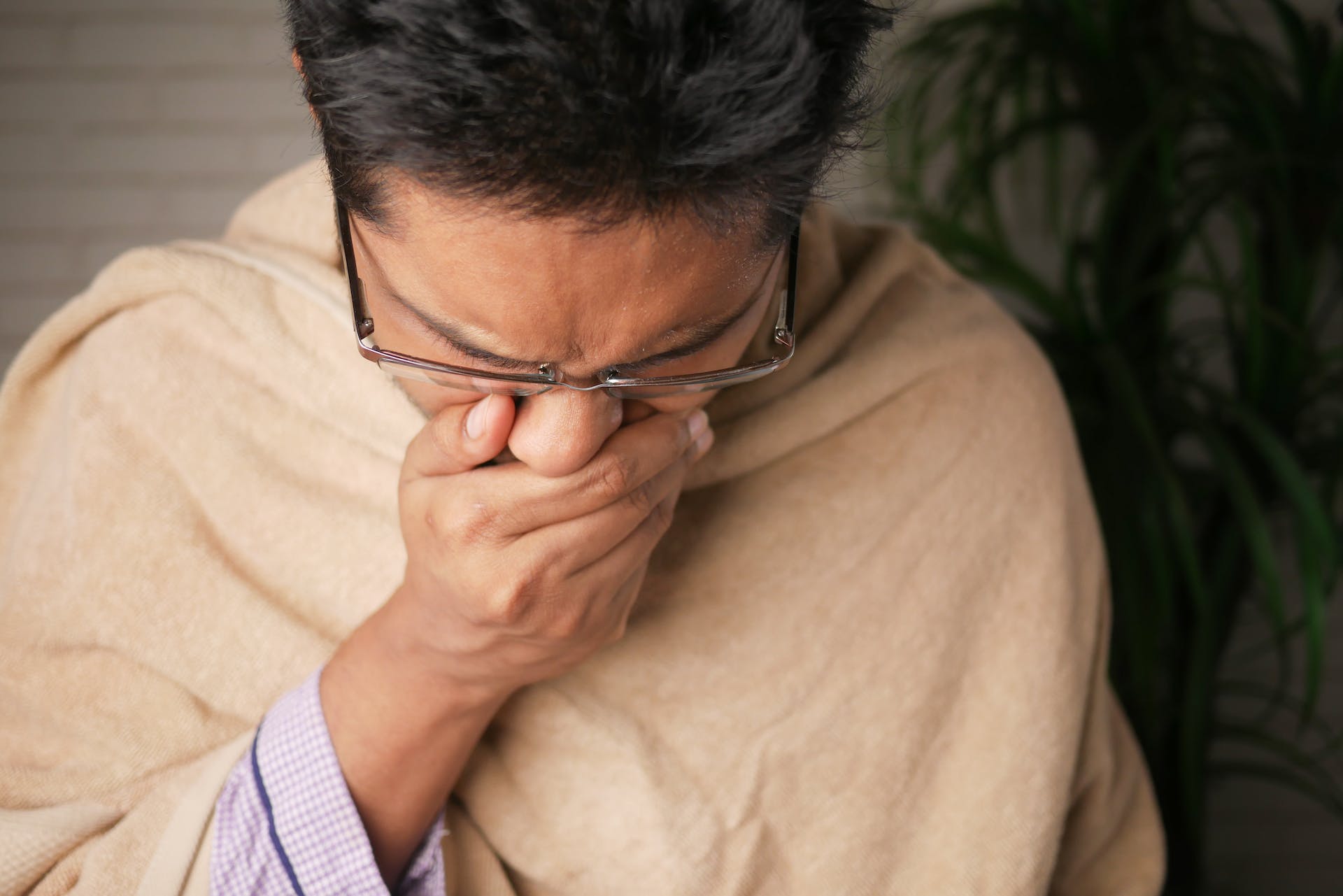Dec
12

Experiencing tooth pain during a cold is a surprisingly common yet often misunderstood phenomenon, and has everything to do with the intricate connection between our sinus health and oral well-being. Put simply, when we catch a cold, the sinuses (aka the air-filled cavities located near our upper teeth) become inflamed and congested, and this inflammation leads to an increase in sinus pressure, which can exert force on the roots of the upper teeth, especially the molars. Consequently, a sensation of dull, throbbing pain or heightened sensitivity in these teeth is not uncommon – so let’s take a closer look at how this works and some effective remedies.
Tooth Sensitivity to Temperature Changes
Colds often bring with them a heightened sensitivity to environmental factors – notably temperature changes – and this sensitivity can extend to our teeth as well.
Discover what causes tooth sensitivity and how it relates to temperature changes.
When suffering from a cold, the body’s response to infections and the resulting fever can alter the nerve responses in our teeth, making them more susceptible to temperature changes. For example, sipping hot beverages or breathing in cold air might trigger discomfort or a sharp pain in the teeth, and this phenomenon might also be particularly noticeable in teeth that already have fillings or previous dental work; this is because the materials used in these procedures can conduct temperature changes more effectively than natural tooth enamel.
Sinusitis and Toothache
Sinusitis, a common occurrence during a cold, can also exacerbate tooth pain, and if sinus issues are the source of your discomfort, you usually won’t have to visit the dentist. But what is sinusitis? This condition involves the inflammation and swelling of the sinus lining and can result in a build-up of mucus and pressure. When the maxillary sinuses – which are located just above the upper teeth – are affected, the pressure can manifest as a toothache, and this pain is often mistaken for a dental problem, despite being a direct repercussion of the sinus condition.
This raises the question: can toothache cause headaches?
The nature of this pain is usually persistent and may intensify when bending over or during sudden head movements, so it can be slightly difficult to find immediate or lasting pain relief.
Impact of Nasal Congestion on Breathing
Nasal congestion is an unpleasant hallmark of the common cold, and it can also indirectly affect our oral health: this is because congested nasal passages force us to breathe through our mouths, leading to a reduction in saliva production. Saliva plays a critical role in neutralising acids and washing away food particles in the mouth, and its reduced flow can thus increase the risk of tooth decay and gum disease. Plus, mouth breathing can dry out the oral tissues, leading to irritation and heightened sensitivity in the teeth and gums.
In addition to all of this, mouth breathing due to nasal congestion can also lead to “dry mouth”, a condition that exacerbates tooth sensitivity and discomfort, while also increasing the risk of dental health issues such as cavities and gum disease. Again, this is because the saliva your mouth produces is essential for neutralising harmful acids and providing a protective barrier for teeth. When its flow is diminished, the mouth’s defence against these dental threats weakens, making teeth more vulnerable to pain and disease.
Bruxism and Jaw Clenching

Another often overlooked contributor to tooth pain during a cold is bruxism (aka teeth grinding) and jaw clenching (often referred to as TMJ or TMD, aka temporomandibular joint disorder). These habits (often brought on by stress) can be exacerbated during illness, especially for those dealing with a particularly severe or anxiety-inducing cold or flu. This is because bruxism and clenching can put significant strain on the teeth and jaw muscles, leading to pain that may be felt in the teeth, jaw, or even the ears. If you do grind your teeth, we’d recommend getting a mouth guard fitted to prevent nighttime grinding, as it can lead to long-term dental issues – such as chipped and broken teeth – if not addressed promptly.
Maintaining Oral Hygiene During Illness
Despite how under the weather you’re feeling, it’s still important to make time for regular brushing and flossing – even if all you want to do is stay in bed and sleep. This practice not only helps in managing potential tooth pain but also prevents potential oral health issues from occurring due to your weakened immunity. Your body’s defences are always weaker after an illness – even a mild one – so keep brushing with a soft toothbrush and fluoride toothpaste, and floss once a day to keep your mouth in optimal condition.
When to See a Dentist
While tooth pain during a cold is usually temporary and resolves as the cold subsides, you should nonetheless monitor the situation closely, especially if your cold clears up but the tooth pain remains. If this is the case, or if the tooth pain is severe and accompanied by other symptoms such as fever or swelling, it’s imperative to seek prompt dental advice. These symptoms could indicate a more serious dental condition, such as an abscess or a tooth infection, both of which require professional intervention.
FAQs
Why do my teeth hurt when I’m sick?
When you’re sick, particularly with a cold or sinus infection, the inflammation in your sinuses can put pressure on the nerves of your upper teeth; this pressure can cause your teeth to ache, making you think you’re dealing with a dental issue when you’re not.
Can a cold cause tooth pain?
Yes, a cold can cause tooth pain! The congestion and sinus pressure associated with a cold can lead to discomfort in your upper teeth, making them sensitive and painful. However if the pain persists when the cold clears up, you should visit your dentist.
Can a virus make your teeth hurt?
Certain viruses, especially those causing colds or flu, can indirectly make your teeth hurt. This is due to sinus pressure from nasal congestion and changes in oral health habits during illness, rather than the virus directly affecting the teeth.










